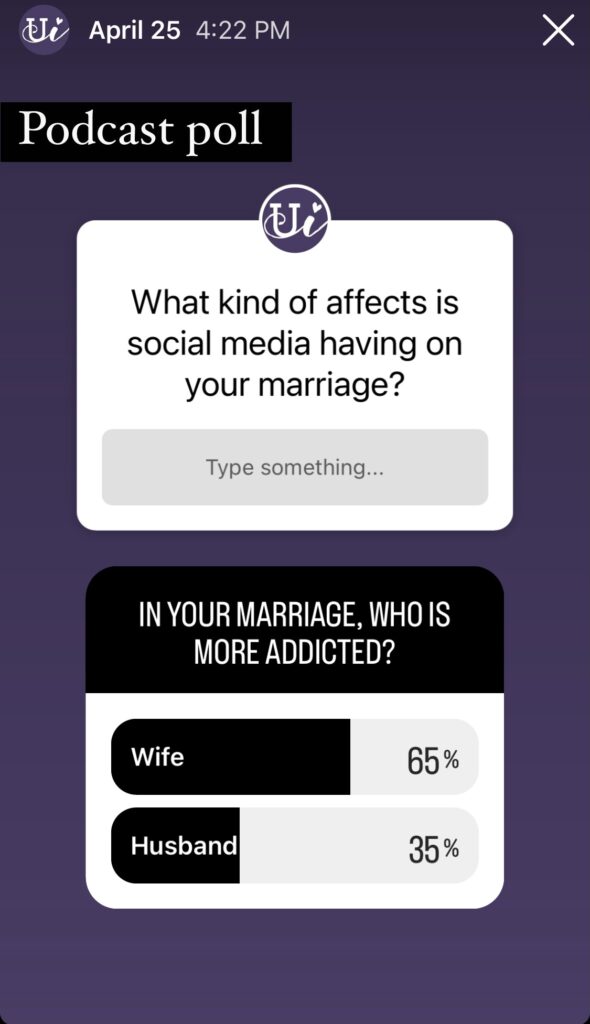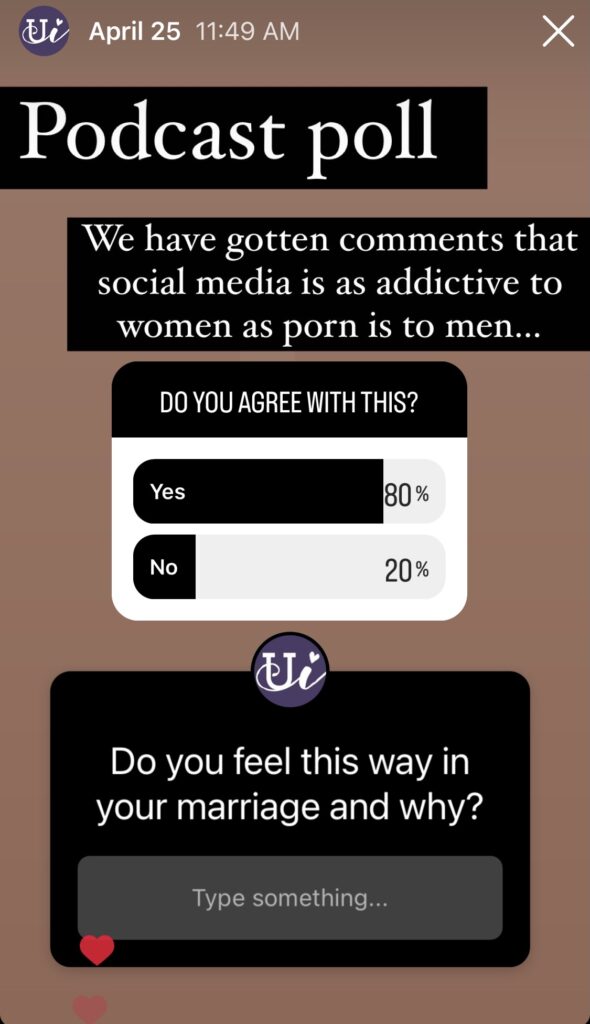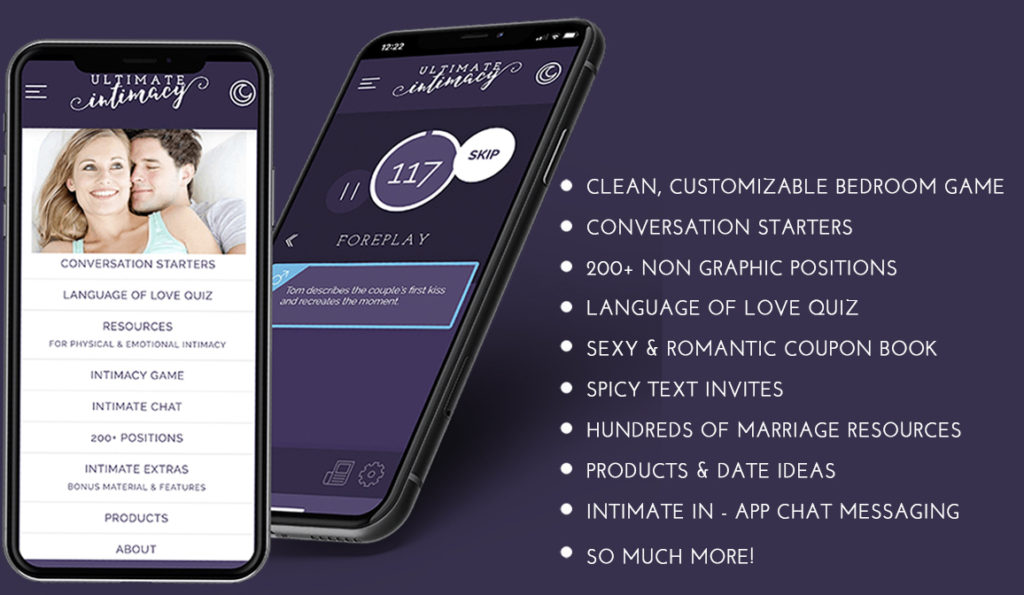Social media has become a ubiquitous part of our lives, providing us with endless opportunities to connect with others, access information, and be entertained. However, as with any technology, it has its downsides, one of which is the risk of addiction.
Women, in particular, may be more vulnerable to the addictive effects of social media, which can lead to negative consequences for their mental health and well-being. In this article, we will explore the reasons why women may be more susceptible to social media addiction, the research supporting this claim, and tips for breaking the cycle of addiction.
As many of you know… we love polls. To further prove our point of this article, we did an instagram poll and asked our audience the following questions to hear what they had to say:
In your marriage, who is more addicted (to social media)?
65% said wife
35% said husband

Do you agree that social media as addictive to women as porn is to men?
80% said yes
20% said no

Women and Social Connection
Women are generally known for their social nature and their need for social connection. Social media provides a convenient way to connect with others, which can be a powerful motivator for women to use these platforms. The ability to stay in touch with friends and family members, as well as meet new people, can provide a sense of belonging and validation, which can be addictive.
Dopamine Release
When we engage in pleasurable activities, our brains release a chemical called dopamine, which creates feelings of happiness and satisfaction. Social media has been found to trigger the release of dopamine, and women may be more susceptible to this chemical reward than men. This can create a cycle of addiction, where women crave the feel-good effects of social media and seek out more opportunities to engage with it.
Comparison and Self-Esteem
One of the negative consequences of social media addiction is the impact it can have on our self-esteem. Women are often bombarded with images of idealized beauty and lifestyles, which can create feelings of inadequacy and low self-esteem. The constant comparison to others on social media can be damaging to women’s mental health, leading to a cycle of addiction as they seek validation and acceptance.
Escape from Reality
Social media can also be used as a means of escaping from the stressors of everyday life. Women may use social media as a way to distract themselves from work or personal relationships, creating a cycle of addiction as they seek to avoid dealing with the challenges of life.
Marketing and Advertising
Finally, social media platforms are designed to be addictive, with features such as infinite scrolling and notifications that encourage users to stay on the platform longer. Additionally, the marketing and advertising industries often heavily target women on social media, which can contribute to addiction.

Despite the negative effects of social media addiction, it is possible to break the cycle and regain control of your life. Here are some tips for overcoming social media addiction:
Set Limits
One effective way to control social media use is to set limits for yourself. Decide how much time you want to spend on social media each day and use apps or features that allow you to track your usage and set reminders for when you’ve reached your limit.
Take a Break
Consider taking a break from social media for a set period of time, such as a week or a month. This can help reset your habits and reduce cravings. In fact, some people report feeling much happier after a week-long break, and many choose to remove social media from their lives entirely.
Change Your Habits
Replace your social media habit with a healthier one, such as reading a book, going for a walk, or practicing mindfulness. By finding alternative activities to engage in, you can break the cycle of addiction and create a healthier lifestyle.
Remove Triggers
Identify what triggers your social media use and remove those triggers from your environment. For example, you could delete social media apps from your phone or block notifications. This will help you reduce the temptation to use social media and make it easier to control your usage.
Seek Support
Consider talking to a trusted friend or family member about your addiction, or seek support from a therapist or support group, or better yet, talk to your spouse!
In conclusion, social media addiction is a growing issue that affects women more than men, and it can have negative impacts on mental health and self-esteem. However, there are steps that can be taken to overcome this addiction and regain control. By setting limits, taking breaks, changing habits, removing triggers, and seeking support, women can reduce their dependence on social media and improve their overall well-being. It’s important to remember that social media can be a great tool for staying connected and building relationships, but it’s important to use it in moderation and with intention.
Ultimate Intimacy
If you are going to be addicted to your phone, you should at least be strengthening your marriage 🙂 Check out the amazing Ultimate Intimacy App! Trusted by over 600,000 couples and an amazing rating in the app stores. Download for free today to take your marriage to another level!

